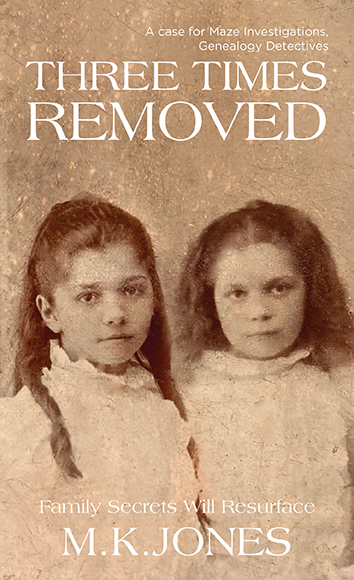
If, like me, you are an avid viewer of the BBC series “Who Do You Think You Are?” you will have been fascinated by the stories of strange, wonderful and dreadful events in the history of the rich and famous. And you may think that your own past is unlikely to be as interesting. Not true.
Genealogy and family history research is a journey, one which can go on for many years. Once you are in, the road just keeps leading you on.
Why Do We Search?
Because there’s a need for connection, to know who we are and where, ultimately, we come from. The leading international research community, Family Search, says that:
“Learning the history of our ancestors helps us gain a greater understanding of the challenges they faced, and it often inspires greater love and compassion for their flaws and mistakes.”
This resonated with my when I took up the challenge. My journey began when my mother took an evening class in genealogy. She was referred to the internet, then in its genealogy infancy, to see what she could find. But, being at that time in her late 60s and with her first computer, she was struggling. I stepped in to help and became immediately hooked. My journey had begun.
The story she was researching was about her grandfather, William whose story I am still delving into today, almost 30 years later. Working with my mother’s notes, I started by finding out who was still alive who could confirm his story. This is the first step in any family research.
Find Out Everything You Can From The Living
In this case we had missed this opportunity directly, but we tried to contact as many of my great grandfather’s remaining grandchildren as we could find. There were only a few and we didn’t get any further clues. Sadly, it was too late to speak directly to any of his children.
Record Everything
Write down, record, everything that an elderly relative tells you. Some of the stories may have become embellished or distorted over time. But this is precious historical memory and worth preserving anyway. And start to record your family tree, even if it’s only a hand-drawn copy. There are computer programmes available, but writing down everything you find, where and when you found it, will also ensure that you don’t repeat research you have already one. I found this out through my own mistakes!
Also, ask for any photographs and documents they might have and are prepared to entrust to you. I inherited a stack of photos from my grandmother – my father’s mother – but none of them have names and I have spent years trying to figure out who they are. But I do have the original copy of my great grandfather’s birth certificate in 1879. A very precious document indeed.
Do Some General Research Around What Resources Are Available
These days, when genealogy research has become an industry, there is a wealth of material out there. Spend some time finding out what there is and the cost, before you decide to spend money.
The best resources are registration records of Births, Marriages and Deaths from 1837 onwards and parish records going back, in some cases, to the start of parish recording, as ordered by Oliver Cromwell. These latter, however, are rare and the quality of the information can be arbitrary. Parish records were standardized by law in 1812 and anything you can find after this time will be better organised.
Start with Free Internet Resources
Family Search is the best and biggest free resource. They record births, marriages and deaths and census records, plus probate and some other relevant records. Warning! The search engine can be random.
There are now FreeReg, FreeCen and FreeBMD. These are transcriptions by volunteers. They are mainly indexes, but can provide vital details.
Lost Cousins is also a good site, based on Census records, and can be accessed free. There is a very reasonable annual fee to join the sit and enter your own details and receive updates from any ‘cousins’.
Using Paid Sites
The big 2 subscription sites: Ancestry and Find My Past, all provide BMD, census and Parish records, but they each also have their specialist collections. Each will tell you what they have before you make up your mind. Check out some others, too. The Genealogist has the 1838 tithe maps in great detail, so if your ancestor was a farmer or tenant it’s possible they can be found here. This site also has a good collection of Apprenticeship records, going back to the mid-1700s.
DNA
I now have 3 tests and am currently embarking on a fourth. Each one has brought new contacts, distant relatives and information. Just recently I discovered a photograph of a sister of my great grandmother, who emigrated to the US in the 1870s, through a DNA connection.
The costs are becoming more reasonable and there are often offers.
The end of my great grandfather’s story? There isn’t one. I am still on the journey. This year I am focussed on finding out more about him.
I am getting a clearer picture every day of Who I Think I Am. But I still love the challenge and the pleasure of every new “find”.
Good luck with yours.













